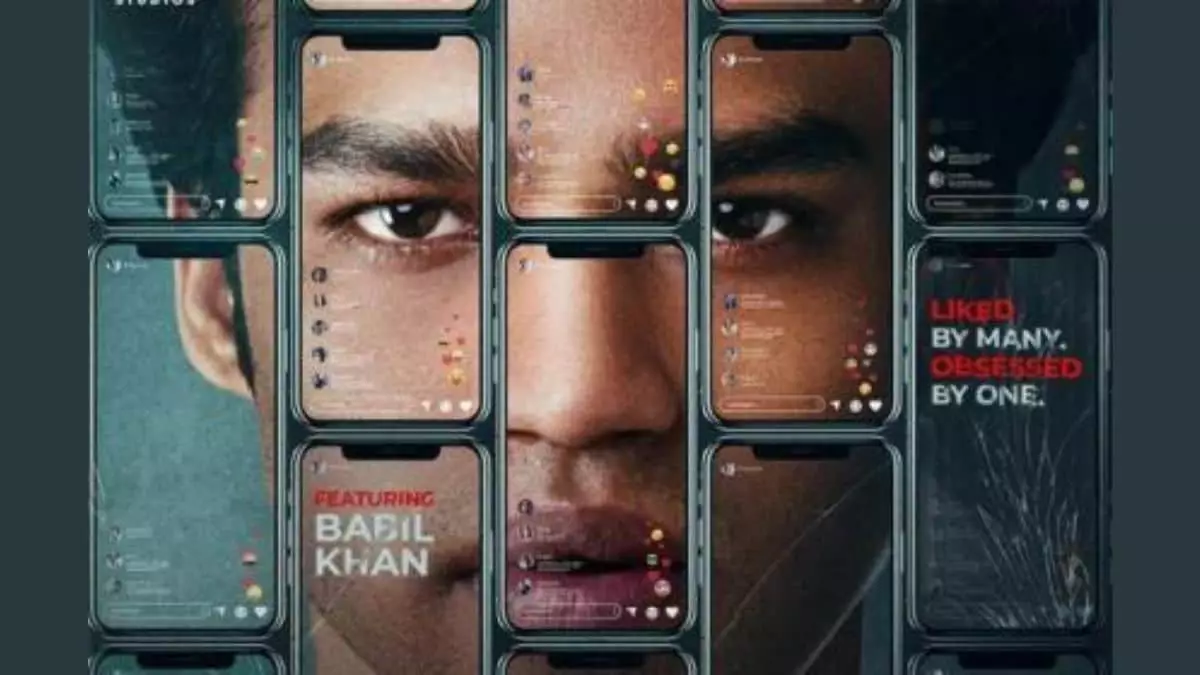In an era where our lives are intricately intertwined with technology, Babil Khan’s upcoming film Logout dares to delve into the gritty underbelly of our digital dependencies. Set to premiere on Zee5 on April 18, 2025, this Hindi-language social drama presents an urgent commentary on the psychological and societal ramifications of our 24/7 connectivity. Through a compelling narrative and relatable characters, Logout stands out as a reflection of the struggles faced by a generation that often finds itself at the mercy of its screens.
The Plight of Pratyush
At the core of the film is Pratyush, embodied by Babil Khan, a young man ensnared by his obsession with social media fame. With aspirations of amassing ten million followers, Pratyush has created a virtual universe populated by his die-hard supporters—the “Pratmaniacs.” This moniker, while charming in its intent, serves as a poignant reminder of how easily individuals can spiral into unhealthy habits as they seek validation online. The metaphor of social media as a double-edged sword is artfully illustrated as Pratyush’s aspirations begin to morph into a debilitating addiction.
As an observer of this unraveling journey, one cannot help but feel an unsettling familiarity with Pratyush’s plight. Many of us are drawn into the digital circus, vying for likes and shares, often forgetting that behind every screen lies a complex human experience. The storytelling within Logout beckons the audience to confront this shared experience—are we truly living, or are we merely existing as digital avatars?
The Empathetic Lens of Therapy
Rasika Dugal’s portrayal of a compassionate yet conflicted therapist provides a vital counterbalance to Pratyush’s character. In an age where mental health discussions have gained momentum, Logout acknowledges that behind every digital addict lies a deeper emotional struggle. The film’s representation of therapy is both refreshing and crucial, arming viewers with the understanding that help is available and that vulnerability is not a weakness. Rather, it is a key to healing.
This thematic depth is what elevates Logout from a mere cautionary tale about technology to an explorative narrative about human frailty. By illustrating the therapist’s own battles and doubts, the film encourages viewers to seek connection not just through screens but through genuine interactions.
A Timely Reflection for Modern Society
The narrative of Logout resonates not only with the digital-savvy youth but speaks volumes to an entire society grappling with the implications of living in a hyper-connected world. It aptly raises the question: at what cost do we pursue digital engagement? The film ventures into issues like cyberbullying and gaming addiction—it becomes a mirror reflecting our very own anxieties concerning technology.
The truth of the matter is that while we celebrate technological advancements, we must also critically assess their consequences on our mental health. What do we lose when we retreat into our digital fortresses? Logout brings forth a powerful indictment of this reality, compelling audiences to ponder on the inherent risks and challenges of incessant connectivity.
A Cultural Commentary for a Global Audience
With its festival acclaim and social media buzz, Logout is positioned to be a significant cultural commentary on contemporary life. Its selections in reputable film festivals indicate a palpable hunger for nuanced stories that do not shy away from challenging popular narratives. Babil Khan, fresh in his acting career, demonstrates a commendable grasp on his character’s emotional arc, while director Amit Golani’s vision intricately ties the film’s themes to present-day societal anxieties.
As the film gears for its OTT release, it stands to invite a global audience to reflect on the weighty issues of digital addiction and the quest for authenticity in a world that often prioritizes image over substance. It dares viewers not merely to watch, but to engage in meaningful introspection about their own relationship with technology. In this sense, Logout emerges as a cautionary tale wrapped in a story of personal discovery, urging us to take a step back, disconnect, and truly live.


Leave a Reply